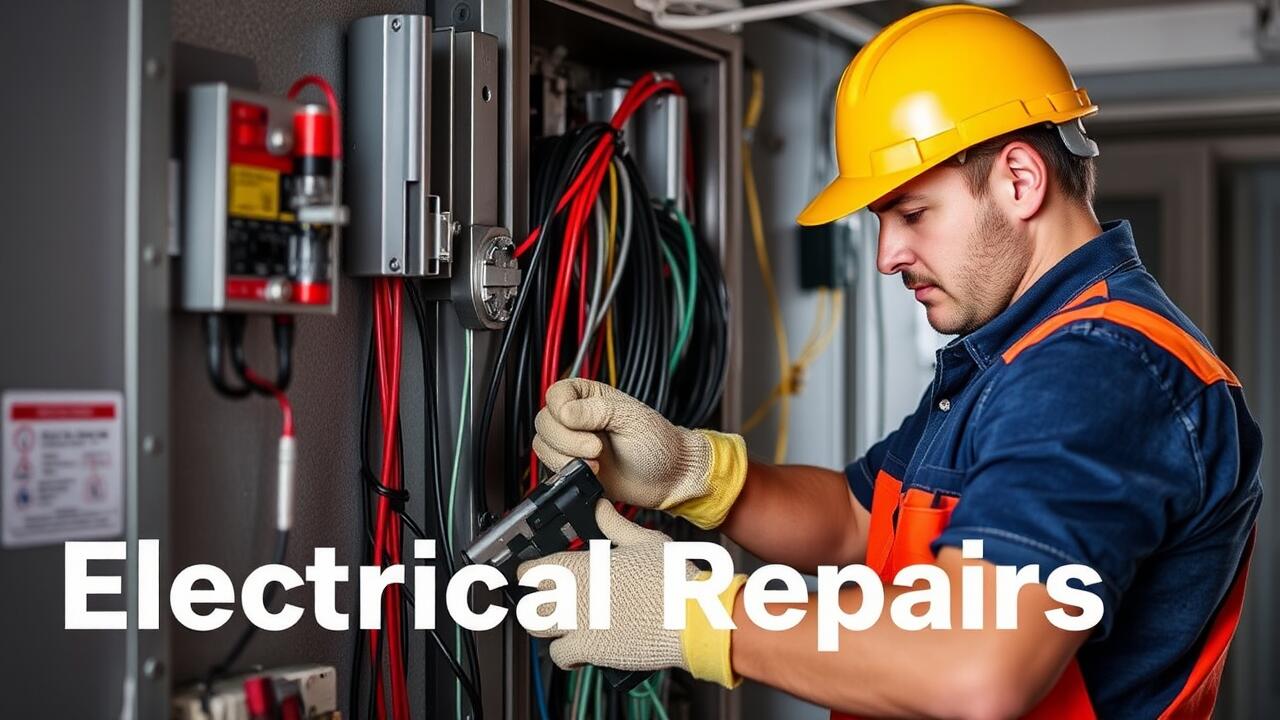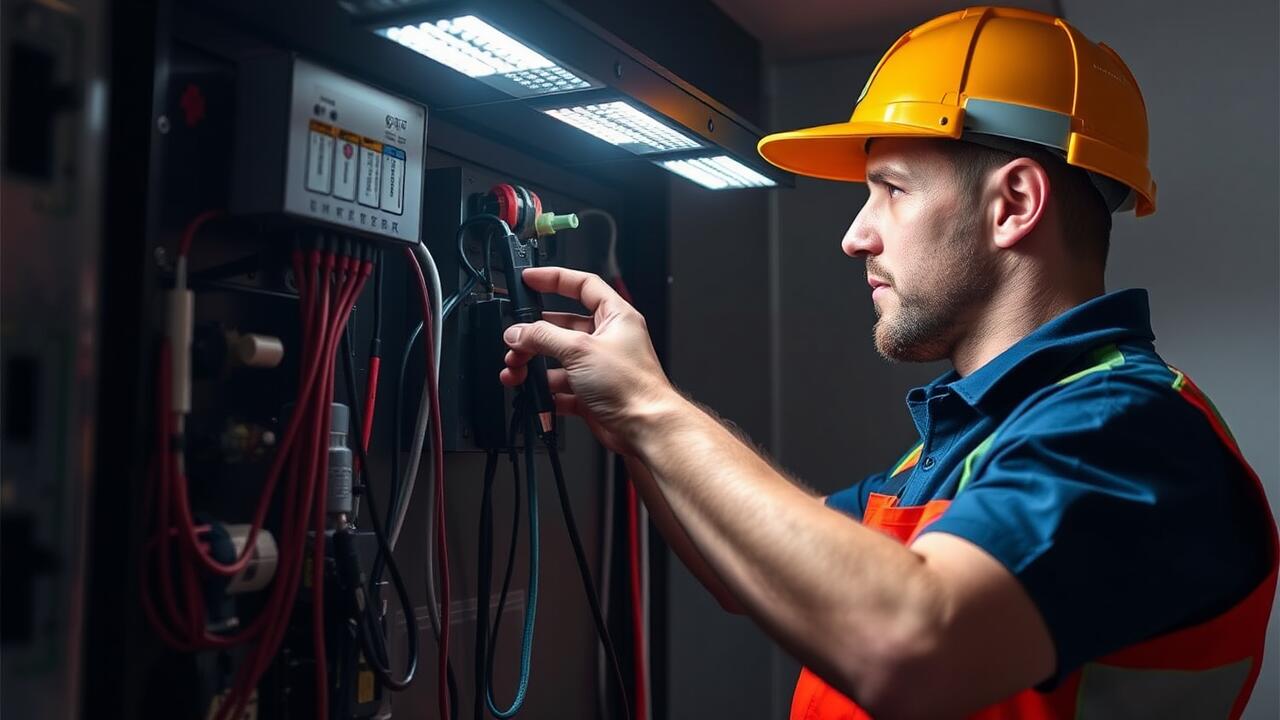
Selecting the Right Circuit Breaker
Choosing the right circuit breaker is crucial for ensuring safety and efficiency in any electrical system. Consider the specific needs of your application, including the total load that will be placed on the circuit. Different types of breakers, such as standard, ground fault circuit interrupters (GFCI), and arc fault circuit interrupters (AFCI), serve unique purposes. Evaluating the electrical demands of your home or facility will help determine the appropriate amperage and voltage ratings needed for optimal performance.
Consulting with professionals can further enhance your decision-making process. Experts in Electrical Repairs Clear Lake City, Houston, can provide valuable insights into choosing a breaker that meets local code requirements and best fits your electrical infrastructure. Additionally, ensuring that your circuit breaker aligns with the overall safety protocols can prevent potential hazards and improve the longevity of your equipment. Assessing your options carefully will result in a safer and more reliable electrical system.
Factors to Consider for Optimal Performance
When selecting circuit breakers, it's crucial to consider the specific electrical load and application requirements. Understanding the amperage and voltage ratings for your system is vital to ensure safe and efficient operation. Overloading a circuit breaker can lead to failure and trip the circuit too frequently, while undersized breakers may not provide adequate protection. Factors such as environmental conditions and the nature of the equipment in use also play significant roles in determining the appropriate breaker type to use.
Regular maintenance is essential for optimizing the performance of circuit breakers. Keeping breakers clean and ensuring that all connections are secure can prevent issues that might arise from dust or corrosion. Professional electrical repairs in Clear Lake City, Houston, can help identify potential problems early on and provide routine checks to prolong the life of your circuit breakers. Adhering to best practices during installation and maintenance ensures that your electrical system remains reliable and efficient over time.
Installation and Maintenance of Circuit Breakers
Proper installation of circuit breakers is crucial for ensuring safety and functionality. It is essential to follow manufacturer guidelines and local electrical codes during the installation process. A qualified electrician should handle the installation to avoid potential hazards. An adequately installed circuit breaker will provide reliable protection against overloads and short circuits, reducing the risk of electrical fires.
Routine maintenance of circuit breakers is vital for optimal performance. Regular inspections can identify any signs of wear or damage, ensuring they remain in good working condition. Keeping electrical panels clean and free from dust contributes to the longevity of the breakers. For those in need of expert help, companies specializing in Electrical Repairs Houston offer services that focus on both installation and ongoing maintenance, ensuring safety and efficiency in electrical systems.
Best Practices for Longevity
To ensure the longevity of circuit breakers, regular inspections play a crucial role. Checking for signs of wear and tear, such as corrosion or overheating, can help identify potential issues before they lead to failure. Additionally, keeping the breaker panel clean and free from dust and debris contributes to better heat dissipation and overall functionality. Homeowners should also pay attention to the environment surrounding their electrical systems, as factors like humidity and temperature fluctuations can impact breaker performance.
Scheduled maintenance is another key aspect of prolonging the life of circuit breakers. Engaging professionals for electrical repairs in Sharpstown, Houston, can provide valuable insights and services tailored to specific needs. Technicians can perform thorough evaluations, ensuring that all connections are secure and that the devices are functioning within recommended parameters. Implementing these best practices not only extends the lifespan of circuit breakers but also enhances safety throughout the electrical system.
Circuit Breaker Ratings and Specifications
Circuit breaker ratings and specifications are crucial for ensuring the safety and effectiveness of electrical systems. Each breaker is designed to handle a specific load, denoted by its amperage rating, which indicates the maximum current that can safely pass through the device. Understanding these ratings helps prevent overloads that could lead to tripped breakers or electrical fires, making it essential for both residential and commercial applications. When choosing a circuit breaker, it is important to consider the voltage rating as well, which indicates the maximum voltage the breaker can handle before it may fail.
For those seeking professional advice on circuit breaker ratings and specifications, resources like Electrical Repairs Houston can provide invaluable assistance. Knowledgeable technicians can guide users in selecting the appropriate breakers based on the specific needs of their electrical system. Proper selection not only enhances safety but also contributes to the longevity and reliability of electrical components. Regular assessments of these specifications ensure that the circuit breakers remain aligned with the changing demands of the electrical system.
Understanding Amperage and Voltage
Amperage, measured in amperes (amps), indicates the flow of electrical current through a circuit. Selecting a circuit breaker with the appropriate amperage rating is crucial as it ensures the breaker can handle the expected load without tripping during normal operation. Too high an amperage rating may prevent the breaker from protecting the circuit effectively, while too low an amperage rating could lead to frequent trips during normal usage, disrupting electrical flow.
Voltage, on the other hand, refers to the electric potential difference that drives the current through the circuit. Circuit breakers must have voltage ratings that match or exceed the voltage in your system to function correctly. When choosing a circuit breaker, ensure that the amperage and voltage ratings align with your specific requirements. For any questions or concerns regarding safety and efficacy during installation or if you need assistance with electrical repairs in Clear Lake City, Houston, it’s important to consult with professionals for guidance.
FAQS
What is a circuit breaker?
A circuit breaker is an electrical device designed to automatically stop the flow of electricity in a circuit when it detects an overload or short circuit, thereby protecting the electrical system from damage.
How do I select the right circuit breaker for my needs?
To select the right circuit breaker, consider factors such as the electrical load, the type of appliances or devices you will connect, the amperage and voltage requirements, and whether you need a single-pole or double-pole breaker.
What are the best practices for maintaining circuit breakers?
Best practices for maintaining circuit breakers include regularly inspecting them for signs of wear or damage, ensuring they are free from dust and debris, testing them periodically, and replacing them if they trip frequently or show signs of malfunction.
What do circuit breaker ratings mean?
Circuit breaker ratings indicate the maximum current (amperage) and voltage that a circuit breaker can handle. It is crucial to choose a breaker with ratings that match your electrical system’s requirements to ensure safety and performance.
What should I do if my circuit breaker keeps tripping?
If your circuit breaker keeps tripping, it may indicate an overload, a short circuit, or a faulty appliance. Start by unplugging devices on that circuit, then reset the breaker. If it continues to trip, consult a licensed electrician for a thorough inspection.




